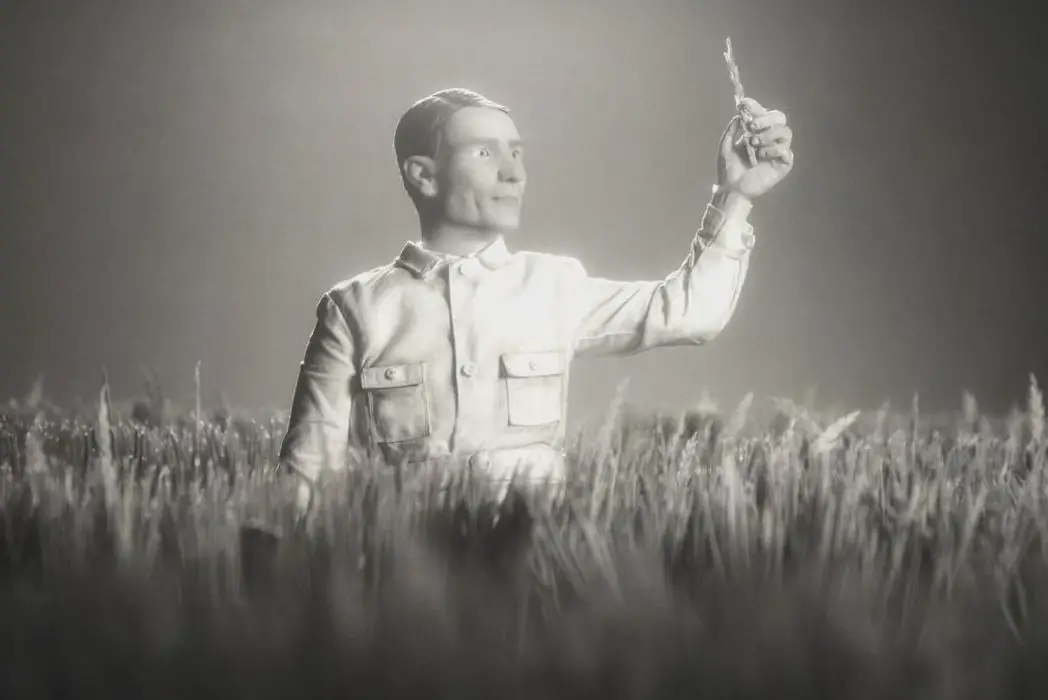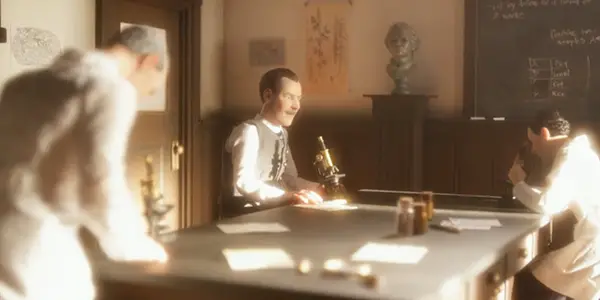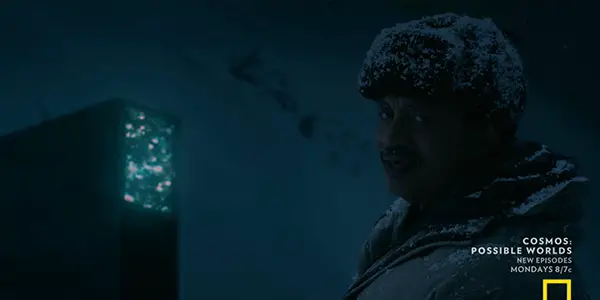COSMOS: POSSIBLE WORLDS (S3E4) “Vavilov”: The Courage Of Our Questions

Digital Media Program Coordinator and Professor at Southern Utah University…
“We can judge our progress by the courage of our questions and the depth of our answers, our willingness to embrace what is true rather than what feels good.” – Carl Sagan
Throughout human history, there have been certain individuals who have made the greatest strides for the collective benefit of humanity. Nikolai Vavilov was one of these. In Episode 4 of Cosmos: Possible Worlds, we explore the life and legacy of this great scientist.
Episode Summary
Less than half a minute ago on our cosmic calendar, human geniuses realized they could plant the seeds they found in plants, and another plant would grow, providing a perpetual source of food. Soon thereafter, as host Neil deGrasse Tyson says: “for the first time, we were thinking about the future.”

Fast forward to the 20th century. Nikolai Vavilov, a Russian botanist, and perhaps one of the greatest heroes the world has ever known, traveled the world to gather and catalogue seeds for every type of plant he could find. While Russia was in the midst of a terrible famine, he made it his life’s mission to end hunger. He and his colleagues gave their lives to see their vision come to pass. Today, much of what we eat every day was “descended from the seeds that the botanists died to protect.”
Stop Motion Puppetry
In exploring the life of Vavilov, the team behind Cosmos chose to depart from the traditional animation style they typically use when exploring the lives of great scientists throughout history. For Nikolai Vavilov, the man who did more to end hunger than any other single individual in history, they chose to employ stop motion puppetry. The result was beautiful.

From the first shot of Vavilov’s story, a slow dolly toward the great scientist working with a microscope, we’re transported to another world. Stop motion has an incredible ability to make its subject feel intensely real, even though viewers do consciously recognize the telltale signs of stop motion. It’s difficult to describe in words, so instead, I’ll use an example.
Consider Wes Anderson’s masterful stop motion film Fantastic Mr. Fox. Anderson is a master at using cunningly placed dichotomy to tell his stories, and the stop motion style used in this example is no exception. The subtle movements in the puppet animals’ fur from frame to frame is a clear sign of their artificial movements, made by the pushing and prodding of stop motion animators. In these tiny fur manipulations is a subtle form of breaking the fourth wall, the definition of which is: “the conceptual barrier between any fictional work and its viewers or readers” (emphasis added). These movements call attention to that barrier between fiction and reality, and therefore almost serve to enhance the realistic feeling exuding from the film, by giving the viewer something real to cling to.
In other words, stop motion is inherently real. Considering, therefore, the incredibly real impact Vavilov had on our everyday lives, the choice to employ stop motion was brilliant. Throughout the episode, every stop motion frame was art, in its highest form.
Courage
Nikolai Vavilov and his colleagues refused to speak against solid scientific evidence and processes, even as Stalin and is pseudoscientists spread their dangerous propaganda. Eventually, Vavilov was put in prison, where he was left to starve to death. His colleagues continued his work, even as Leningrad came under siege from Germany. As the city succumbed to hunger, these scientists were sitting among plentiful food, in the form of the various plants and seeds they had collected and catalogued.
These incredible scientists, every single one, sacrificed their lives to protect their priceless treasure. “The botanists perished from hunger, and yet not a grain of rice in the collection was unaccounted for.” The Svalbard Global Seed Vault, humanity’s greatest defense against famine, exists only because of their incomparable sacrifice. Truly, as Sagan said, our progress is judged by “the courage of our questions and the depth of our answers.” Never has there been greater examples of such human courage as that found in Nikolai Vavilov and his colleagues. We owe them our lives.

Cosmos: Possible Worlds continues to show why science is critical to our survival as a species. Will we go the way of Stalin and his pseudoscientists, condemning generations to suffer the consequences of climate change? Or will we listen to and act upon the words of those great heroes of science, like Vavilov, and by so doing, ensure the best possible future for our species? The final shot of the episode shows icicles hanging from the handrails just outside the Svalbard Global Seed Vault, icicles that should not be melting, but are. Tyson’s concluding words are a scathing rebuke: “If only our future was as real and precious to us as it was to them.”
Cosmos: Possible Worlds Season 3 Episode 4: Vavilov, aired on March 16, 2020 on National Geographic.
Does content like this matter to you?
Become a Member and support film journalism. Unlock access to all of Film Inquiry`s great articles. Join a community of like-minded readers who are passionate about cinema - get access to our private members Network, give back to independent filmmakers, and more.
Digital Media Program Coordinator and Professor at Southern Utah University and Southwest Technical College; M.Ed.; Author at Labyrinth Learning and Film Inquiry. Passionate educator of film theory and history. World-class nerd with a wide array of interests and a deep love for many different fandoms.













